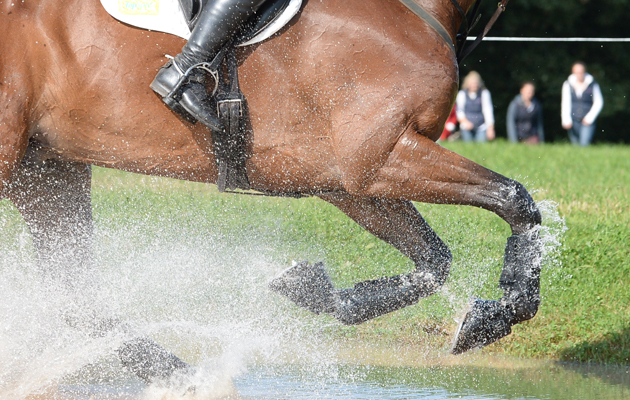Half my lifetime ago I aired the idea in a magazine that horse sports, apart from polo, are not really team sports.
Since the system hasn’t changed in 30 years, perhaps not many people agreed with my thesis then!
I thought, however, it was worth another look in the light of the debate about what eventing format might be adopted to keep both that sport and the other equestrian disciplines in the Olympics.
I dug the old piece out when the new debate opened up, and thank Horse & Hound for suggesting I put my old, slightly revised, views up for current discussion. Much has changed in 30 years, but some of my original points still stand up.
In eventing, the loss of the roads and tracks and steeplechase — a change brought about partly to keep us in the Olympics — has largely stopped the unwelcome sight of tired horses being flogged on “for the team”. Also ground juries now are much hotter at eliminating pairs for dangerous riding and ugly sights.
Eventing is practised 99.9% of the time as an individual pursuit. It seems perverse to change the game for championships.
Britain has done very well in the team competitions over the years, and I have been proud to cheer them on. I was also immensely privileged to be press officer at London 2012, where I was able to bask in the reflected glory of the British team successes. I loved being part of it. It still didn’t change my mind.
The real teams are horse with rider and the back-up squad of owners, trainers, vets and grooms.
The discard score system for teams is also a nonsense, but without it the team competition would become pointless if the first rider crashes out.
I am happy to declare past form on this. When I was 22, I was in a winning British team in a contest at Boekelo alongside my hero, Lucinda Prior-Palmer (now Green). I fell off and had no part in the team score. I did complete the event, and this “triumph” is on my CV. I am looking at the team photo of the prize-giving as I tap this out — nice to have, but I am not fooling myself.
Inclusivity vs credibility
There has always been a notion that nations will only back teams for the Olympics. I still don’t buy into that. The newer equestrian nations don’t have a deep enough pool to select viable teams, and the Olympic competition must maintain its level of difficulty to retain credibility.
With eventing, where cost has always been an issue, the shorter format has undoubtedly made the sport more viable, but the mad system used in 1996 and 2000 — when there were separate team and individual Olympic contests, with two courses — was bonkers.
Christopher Bartle had quite a good stab at a possible format in Horse & Hound earlier this year, explaining how an Olympics could run a team and individual competition at the same time. It would produce a result, but would be virtually impossible to understand as it was happening. Much easier to ditch the bogus team situation altogether.
A lot of money is spent giving riders “team experience”, but the sport is an individual one. Surely these considerable sums could be better spent elsewhere?
Of course these discussions about changes in format have only come about because of the edict from the International Olympic Committee that all sports must appeal to the old Coke ad cliché of a young, broad audience, and that participation must therefore be inclusive.
I really do not see how the Olympic movement can reconcile the opposite criteria of inclusivity and elite sport, but let us hope eventing isn’t changed just to tick these boxes.
Do you agree? Let us know at hhletters@timeinc.com
Ref: Horse & Hound; 12 November 2015
